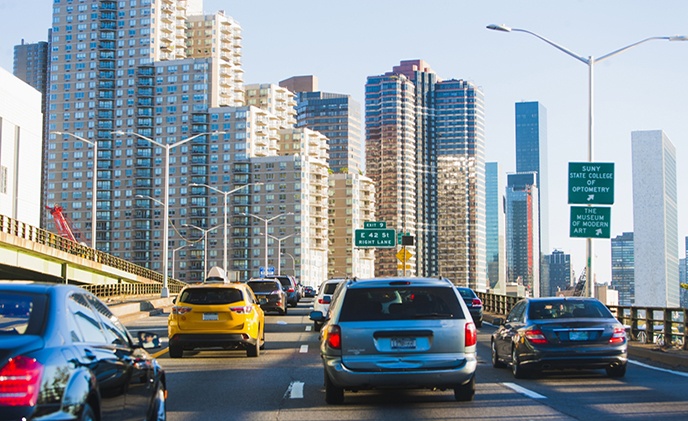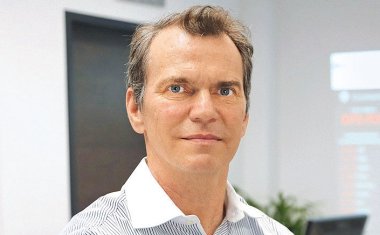How intelligent camera solutions help to increase traveler safety and Transportation infrastructure efficiency
As more and more people move into cities worldwide and people have an increasing drive to travel, the strain on the transportation infrastructure is on the rise, and pressure is on...

As more and more people move into cities worldwide and people have an increasing drive to travel, the strain on the transportation infrastructure is on the rise, and pressure is on to keep travelers safe at all times. City authorities and transport operators look for means to better understand the usage patterns of all transportation modes in order to sustain these increasing utilization levels and guarantee passenger safety.
For quite some time camera technology has been deployed to allow traffic and security operators to closely monitor critical parts of this infrastructure. With the growth of the infrastructure and the need for more knowledge of its use, the monitoring technology developed for use by human operators has evolved into intelligent sensing technology that no longer just provides video feeds but uses intelligent analytics and sophisticated support systems. These systems filter out irrelevant sensor data and present only meaningful events complete with all relevant context data to operators for decision making.
Bosch has developed cameras and support systems for a lot of applications in transportation for a long time and heavily invests in further advancing the state of video analytics technology, so it not just is useful for human operator surveillance but can really deliver KPIs that are relevant to transport operators, planners and city authorities.
Except for the lowest range, Bosch cameras include analytics processing capabilities at the edge, so in the camera. This has the advantage that only the analytics output metadata needs to be transmitted from cameras to central system and no video feeds need to be transmitted for analysis in expensive server farms. So the network transport capacity is vastly reduced, in many cases a 3g or 4g wireless connection can easily handle this network load, which save installation costs and increases deployment flexibility. With every camera that’s added to the system from Bosch, the required processing power for its video stream is available in the camera and does not require additional server capacity.
In traffic applications, and outdoor analytics in general, lighting conditions vary continuously and inclement weather provides big challenges for video analytics. Bosch high-end series cameras of the 7000i-9000i series run specially tuned and hardware accelerated algorithms that prevent false alarms. This helps ensure that systems with 100s or even 1000s of cameras don’t swamp operators with a deluge of false alerts during bad weather.
Bosch also heavily invests in integrating and fusing video based analytics data with other sensor data to produce more meaningful information. The Bosch MIC IP fusion 9000i cameras combine optical and thermal imaging modules in a single PTZ camera. Both camera modules produce analytics overlays which are registered and fused with the video stream of either module. For instance, the analytics data of the thermal cam can be rendered on top of the video of the optical camera when the operator watches the color camera’s image. In a similar fashion the metadata of the color camera shows up on the image of the thermal camera, with icons indicating alarm conditions outside the view of the thermal camera that are detected by the optical camera analytics looking at a wider field of view. All this is done even while the PTZ camera is moving!
In another sensor fusion application the analytics of an audio array camera determines the geolocation coordinates of audio sources of interest (think of gunshot detection or aggressive shouting at airports or in city centers or other load noise sources during the night in a city center) and steers MIC IP or AUTODOME IP PTZ cameras to these geolocation to capture video footage of these audio sources.
For parking lot management both magnetics based wireless sensor technology and in-camera machine learning algorithms are combined with license plate capturing cameras and provide drivers with parking availability data on their phone, car-park attendants with violation data on their mobile devices, and car-park operators with dashboards showing real-time and historical usage data of parking lots.
In traffic intersection management Bosch video analytics data is sent to intersection controller units for improving pedestrian and cyclist safety and optimizing traffic light cycles based on real-time detection of pedestrians and cyclists. Radar technology, which Bosch has developed for use in autonomous driving systems, can also be applied in intelligent traffic support systems to improve safety and traffic flow and reduce pollution on intersections by measuring speeds of vehicles approaching intersections and providing advance detection of heavy vehicles and signaling that pedestrians are on the road to vehicles approaching.
In inner cities, curbside space is a very valuable asset and city authorities are interested in curb side usage patterns for parking, bus stop miss-use and pedestrian safety. Bosch camera analytics is used to provide insights about curbside usage, double parking, traffic volume and speed and pedestrian walking patterns near bus stops. This helps city agencies to improve street layout, determine parking offenders that clog the city’s’ streets and, through pre- and post analysis, investigate the effectiveness of measures implemented to improve matters.
On airports Bosch PTZ cameras have been integrated with various radar systems to provide perimeter protection on the airside. The radar systems detect objects moving near the airport perimeter, determine the position and direction and control the camera positioning system to capture video and track these objects
In a slightly different airport scenario cameras, sometimes combined with radar, are used to monitor airplanes and their landing gear during departure and approach and to detect potentially dangerous landing conditions due to wet landing strips.
In the security area of airports or on the airside, video streams from multiple cameras are stitched together into large comprehensive visual overview improving the situational awareness of security and ATC operators
In order to keep tabs on traveler waiting times during check-in, luggage drop-off and security checks, the analytics of Bosch cameras is used to count passengers as they work their way through the queues. Information panels inform the passengers about the expected processing times, and airport capacity planning uses the collected data to optimize personnel planning and quick reactions to capacity problems.
Together we can rethink what video security can do.
For more information please use this link.









